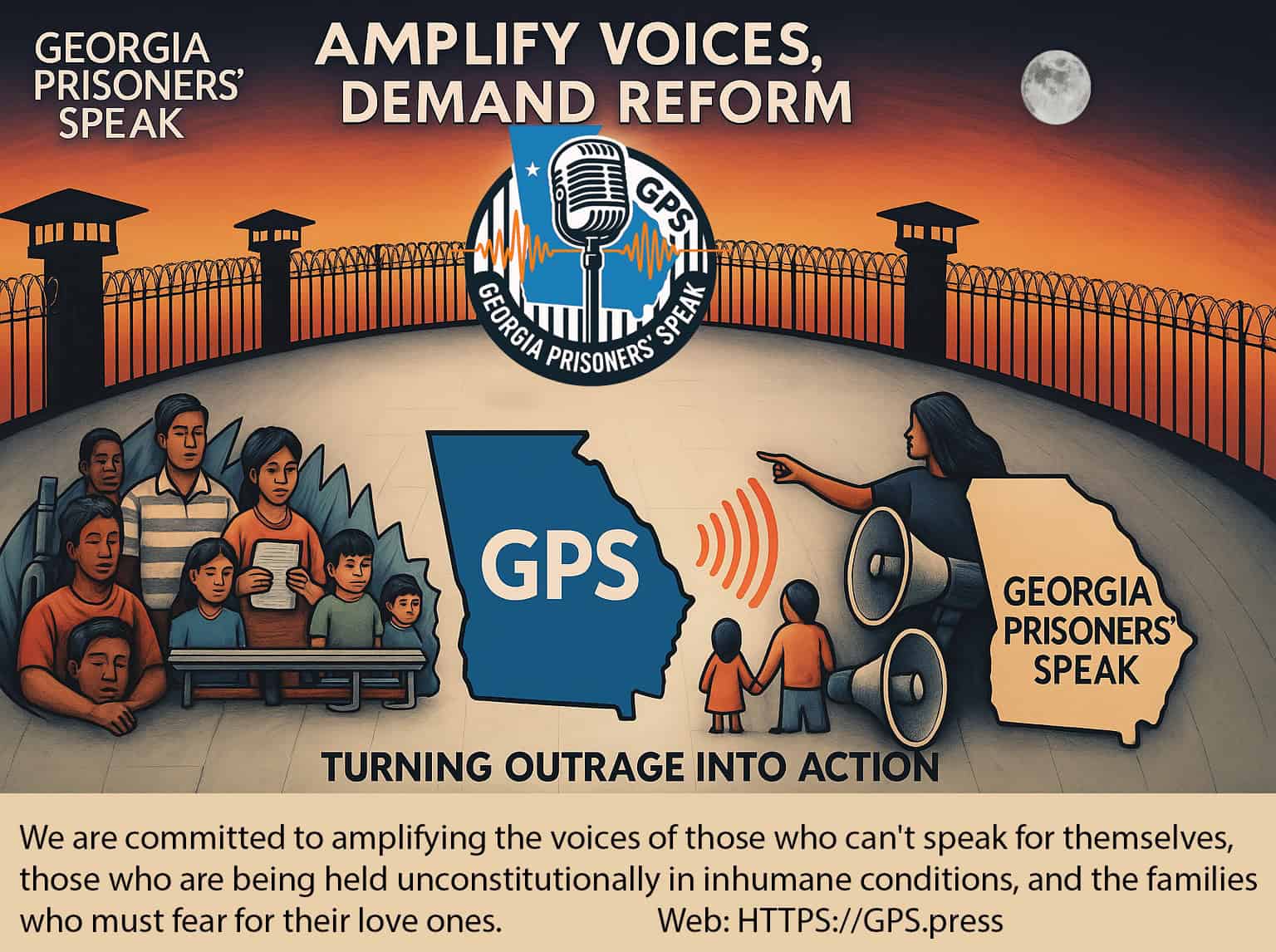Georgia’s parole board operates with unchecked power, inconsistent standards, and no transparency. In 2024, 156 inmates died in custody while the board denied parole to people who posed no public safety risk. Decisions focus on past offenses rather than rehabilitation progress. Valdosta State Prison operates with 80% staff vacancy while the parole board refuses to release eligible inmates. Georgia has the highest probation rate in the nation—yet its parole system creates more prisoners instead of fewer. 1
The Problems
Georgia’s parole system fails at every level:
- Inconsistent decisions—identical cases get opposite outcomes
- No clear guidelines—inmates can’t know what qualifies them
- Focus on past, not progress—rehabilitation achievements ignored
- No transparency—families can’t understand denials
- No accountability—board decisions face no review
The Department of Corrections stopped reporting suspected causes of death in custody. The parole board operates with similar opacity.
What Reform Requires
Effective parole reform includes:
- Clear eligibility criteria—inmates know what they need to achieve
- Focus on rehabilitation—program completion matters more than original offense
- Regular case reviews—frequent reconsideration for eligible inmates
- Transparent decisions—written explanations for denials
- Appeals process—mechanism to challenge arbitrary decisions
Data-driven risk assessment tools can identify people least likely to reoffend—far more accurately than gut feelings and offense-based decisions.
Connect Parole to Programs
Parole should reward rehabilitation:
- Educational achievement—degrees and certifications matter
- Vocational training completion—job skills reduce recidivism
- Mental health treatment—addressing underlying issues
- Substance abuse programs—recovery improves outcomes
But Georgia’s staffing shortages mean programs barely exist. People can’t complete programs that aren’t offered—then get denied parole for lack of program completion.
Sentencing Reform
Parole reform requires sentencing reform:
- Reduce mandatory minimums—judicial discretion matters
- Alternative sentences for nonviolent offenses—diversion works
- Retroactive sentence reductions—apply new laws to old cases
- Compassionate release criteria—elderly and terminally ill inmates
Georgia’s prison population of 51,766 people could decrease dramatically with rational parole and sentencing policies.
Take Action
Use Impact Justice AI to send advocacy emails demanding parole reform. The free tool crafts personalized messages to Georgia lawmakers—no experience required.
Demand:
- Transparent parole criteria and decision explanations
- Focus on rehabilitation rather than original offense
- Appeals process for denied cases
- Regular public reporting on parole outcomes
Further Reading
- A System Built for Failure: Georgia’s Parole Crisis
- Parole in Name Only: The Hidden Failures of Georgia’s Justice System
- GPS Informational Resources
- Pathways to Success
About Georgia Prisoners’ Speak (GPS)
Georgia Prisoners’ Speak (GPS) is a nonprofit investigative newsroom built in partnership with incarcerated reporters, families, advocates, and data analysts. Operating independently from the Georgia Department of Corrections, GPS documents the truth the state refuses to acknowledge: extreme violence, fatal medical neglect, gang-controlled dorms, collapsed staffing, fraudulent reporting practices, and unconstitutional conditions across Georgia’s prisons.
Through confidential reporting channels, secure communication, evidence verification, public-records requests, legislative research, and professional investigative standards, GPS provides the transparency the system lacks. Our mission is to expose abuses, protect incarcerated people, support families, and push Georgia toward meaningful reform based on human rights, evidence, and public accountability.
Every article is part of a larger fight — to end the silence, reveal the truth, and demand justice.

- GPS Statistics, https://gps.press/gdc-statistics/[↩]
